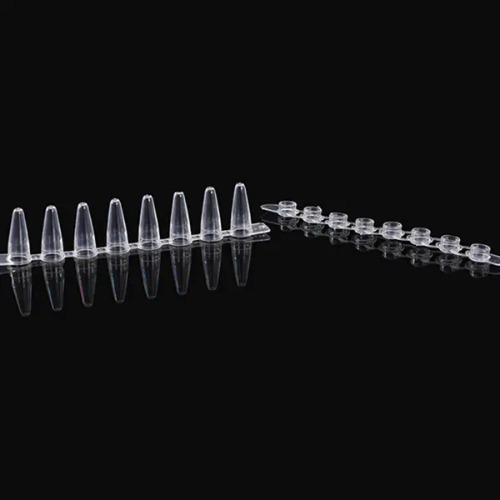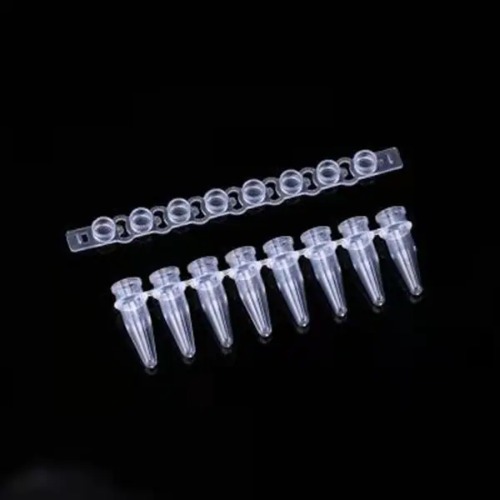In the realm of molecular biology, Polymerase Chain Reaction (PCR) stands as a cornerstone technique, amplifying DNA sequences with remarkable precision. At the heart of this process lie the often-overlooked heroes: PCR tubes. These seemingly simple vessels play a crucial role in the success of PCR experiments, and their design can significantly impact results. As laboratories seek to enhance their workflows, the choice of pcr tubes suppliers becomes increasingly important. This article delves into the nuances of PCR tube design, exploring how these containers influence amplification speed, accuracy, and overall experimental success.
Table of contents:
How PCR Tube Design Impacts Amplification Speed and Accuracy
The Science Behind Heat Transfer in PCR Tubes: Material and Wall Thickness
Comparing Single Tubes vs. Strip Formats: Choosing the Right PCR Tubes
Wholesale PCR Tubes: Strategies for Labs to Maintain Consistent Quality
The design of PCR tubes is far from arbitrary; it's a carefully considered aspect that can make or break an experiment. PCR tubes suppliers understand that the shape, material, and construction of these tubes directly affect heat transfer efficiency—a critical factor in PCR cycling. Tubes with ultra-thin walls, like those offered by leading pcr tubes manufacturers, facilitate rapid and uniform temperature changes. This swift heat conductivity ensures that the DNA samples within reach target temperatures quickly and evenly, promoting efficient amplification. Moreover, the flat lid design found in high-quality tubes supports compatibility with real-time PCR instruments, allowing for accurate fluorescence detection without interference.

The science of heat transfer in PCR tubes is a testament to the importance of material selection and manufacturing precision. PCR tubes suppliers typically use medical-grade polypropylene, known for its excellent thermal properties and chemical resistance. The wall thickness of these tubes is a critical factor; thinner walls allow for faster heat transfer, but they must also be sturdy enough to withstand the mechanical stresses of centrifugation and thermal cycling. Advanced pcr tubes manufacturers have perfected this balance, creating tubes that can withstand temperatures from -20°C to 100°C and centrifugal forces up to 6000g RCF, all while maintaining optimal thermal conductivity for PCR reactions.

When selecting PCR tubes, laboratories must consider the format that best suits their workflow. PCR tubes suppliers offer both single tubes and strip formats, each with its advantages. Single tubes provide flexibility for varying sample numbers, while strip formats are ideal for processing multiple samples simultaneously. The choice between 0.1ml and 0.2ml volumes also impacts reaction efficiency and reagent conservation. Pcr tubes manufacturers design strip formats with features like special sealing to prevent cover explosion during thermal cycling, ensuring sample integrity. The compatibility of these formats with various PCR instruments is crucial, and reputable suppliers ensure their products work seamlessly with conventional and real-time PCR machines.
For laboratories conducting high-throughput PCR, sourcing wholesale PCR tubes is a strategic move to ensure consistent quality and cost-effectiveness. PCR tubes suppliers offering wholesale options often provide comprehensive quality assurance, including certifications like ISO9001, ISO13485, FDA, and CE. These certifications are hallmarks of pcr tubes manufacturers committed to maintaining high standards across large production volumes. When purchasing in bulk, labs benefit from uniformity in tube specifications, reducing variables that could affect experimental outcomes. Moreover, wholesale procurement from reliable pcr tubes suppliers allows for better inventory management and reduces the risk of supply chain interruptions that could hamper research progress.
Optimizing PCR efficiency is a multifaceted endeavor, with the choice of PCR tubes playing a pivotal role. As we've explored, the design intricacies of these tubes—from material selection to wall thickness and format options—significantly influence the success of PCR experiments. Laboratories must carefully consider their specific needs when selecting PCR tubes, weighing factors such as heat transfer efficiency, compatibility with instruments, and overall quality assurance. By partnering with reputable pcr tubes manufacturers and suppliers, researchers can ensure they have access to high-quality tubes that meet the demanding requirements of modern molecular biology. As PCR continues to evolve, the ongoing innovation in tube design by leading pcr tubes suppliers will undoubtedly contribute to more efficient, accurate, and reliable genetic amplification processes, furthering scientific discovery across various fields.